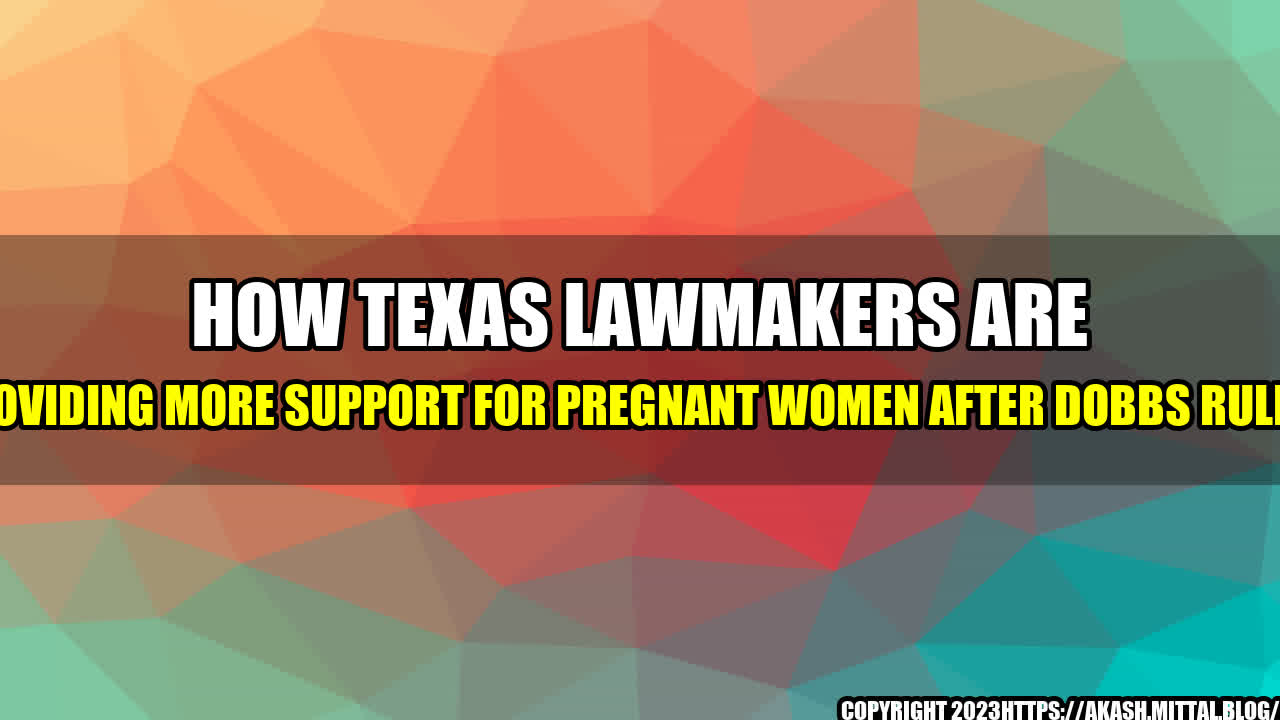
On December 1, 2021, the Supreme Court of the United States issued a landmark ruling in Dobbs v. Jackson Women's Health Organization that upheld Mississippi's ban on abortions after 15 weeks of pregnancy. This ruling has generated a lot of controversy and concern, with many people worried about the impact it will have on women's rights and access to healthcare.
However, in the wake of this ruling, some Texas lawmakers have taken steps to provide more support for pregnant women and families. Here are some examples:
Texas has expanded funding for Pregnancy Resource Centers, which provide counseling, education, and practical assistance to women facing unplanned pregnancies. These centers offer services such as pregnancy tests, ultrasound exams, parenting classes, and material assistance (such as diapers, formula, and clothing). They also provide referrals for medical care, adoption agencies, and other services. By increasing funding for these centers, Texas is helping women make informed choices and providing them with the resources they need to care for themselves and their children.
Texas has one of the highest rates of maternal mortality in the country, with an average of 14.6 deaths per 100,000 live births in 2018. To address this issue, Texas has established a Maternal Mortality and Morbidity Task Force, which is responsible for analyzing data, identifying trends, and making recommendations for improving maternal health outcomes. In addition, Texas has expanded Medicaid coverage for pregnant women up to two months after giving birth, which can provide crucial support for low-income women and families.
Texas has increased funding for childcare assistance, which can help parents afford high-quality childcare while they work or attend school. This assistance can take the form of subsidies, vouchers, or grants, and can help cover the cost of care for young children as well as after-school care for older children. By providing this assistance, Texas is helping parents balance their work and family responsibilities and supporting the healthy development of young children.
These are just a few examples of how Texas lawmakers are providing more support for pregnant women and families in the wake of the Dobbs ruling. By investing in resources and services that promote healthy pregnancies and families, Texas is helping to create a brighter future for its residents.
As Texas continues to navigate the aftermath of the Dobbs ruling, these efforts to support pregnant women and families are an important step forward. By investing in maternal and child health, Texas can help ensure that all its residents have access to the care and resources they need to thrive.
Healthcare
Curated by Team Akash.Mittal.Blog
Share on Twitter Share on LinkedIn